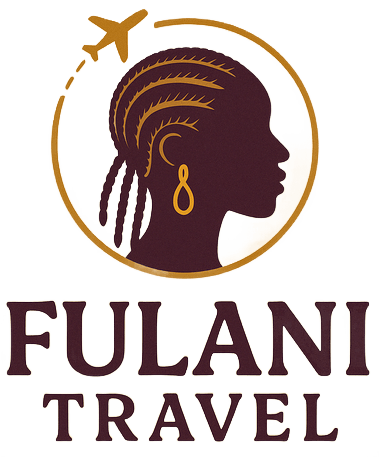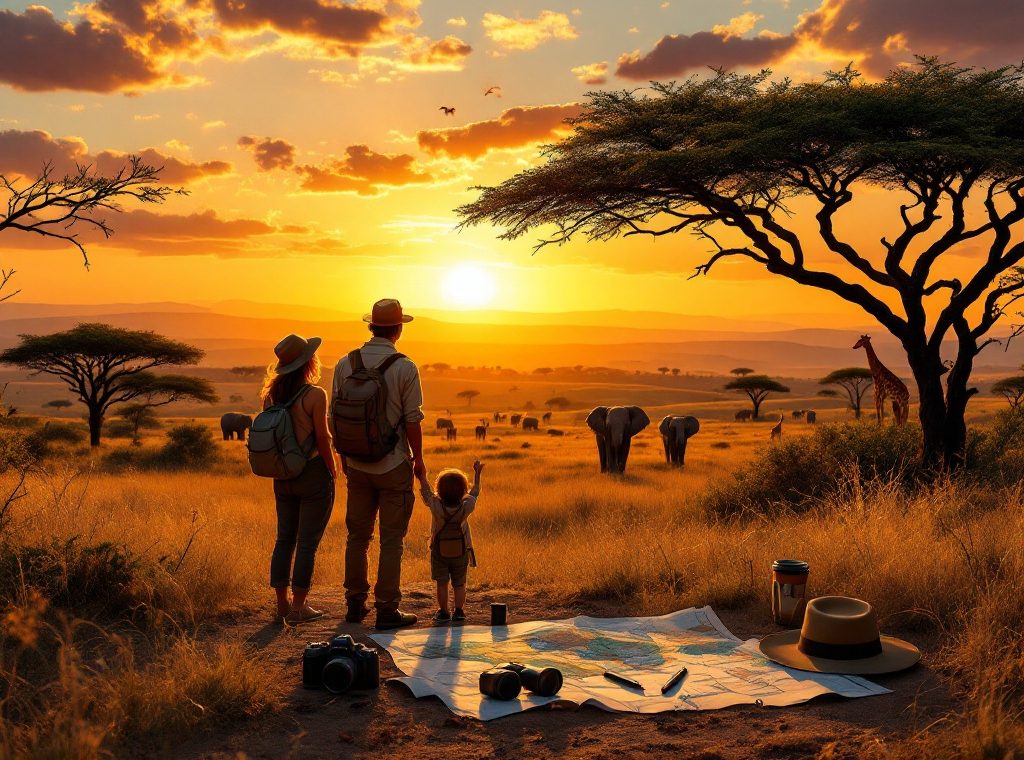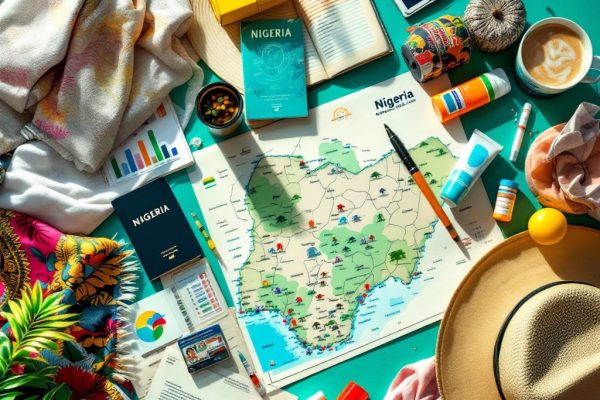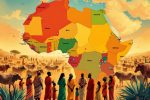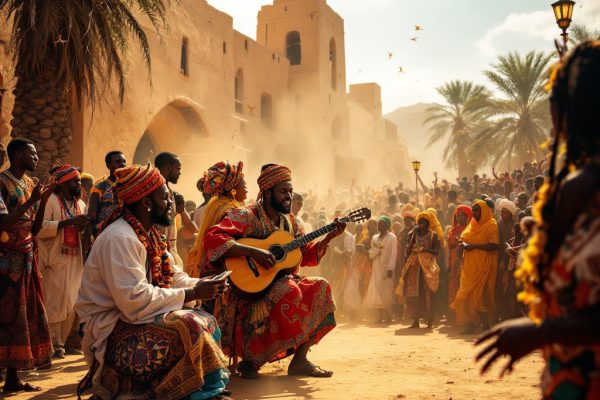How Much Does It Cost to Travel to Africa: Budgeting Tips
Dreaming of an African safari? Roundtrip flights from the US typically cost $2,000-$3,000 in economy and $4,000-$6,000 in business class. But airfare is just the beginning! Discover how factors like accommodation, transportation, activities, and even your travel dates impact your total budget. Learn essential budgeting tips, from choosing budget-friendly hostels to exploring free activities, to make your dream African adventure a reality. Read on to plan your unforgettable safari without breaking the bank.
Important information
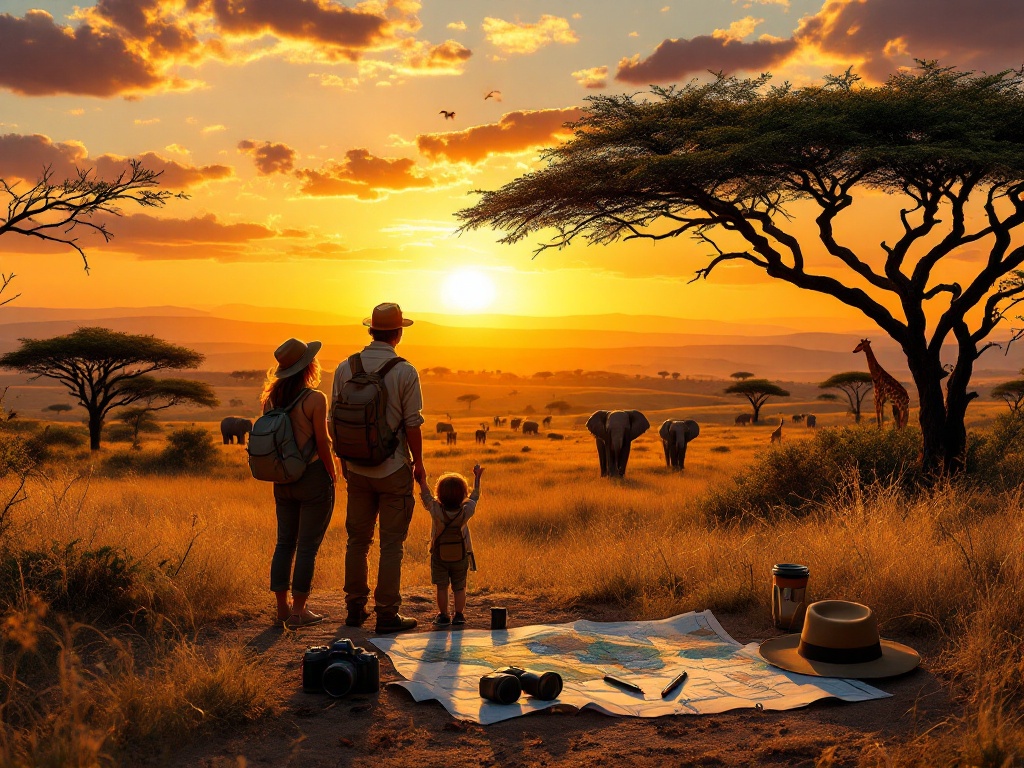
- Flights from the US to Africa typically cost $2,000-$3,000 for economy and $4,000-$6,000 for business class.
- A week-long all-inclusive trip can range from $1,000 to $3,500, depending on your travel style.
- Accommodation varies widely, from budget-friendly hostels ($20-$50/night) to luxury lodges ($150+/night).
- Save money by using local transportation, eating street food ($1-$5/meal), and enjoying free activities like hiking and visiting local markets.
- Plan and book flights and accommodation in advance for better deals, and consider travel insurance ($50-$150) and visa costs ($30-$45).
Understanding the Cost of Traveling to Africa
Planning an African safari is an exciting endeavor, but careful budgeting is key. Roundtrip airfare from the US typically ranges from $2,000 to $3,000 in economy class. For a more comfortable journey, business class fares range from $4,000 to $6,000. These flight costs are just the starting point. Several factors influence your overall expenses: your chosen destination, the travel season, the duration of your stay, your preferred accommodation, planned activities, and local transportation within Africa. Meticulous planning is crucial for a seamless and memorable safari experience.
Factors Affecting Travel Costs
Your travel expenses depend on several factors. Accommodation costs vary greatly, from budget-friendly hostels to luxurious hotels. Transportation expenses also play a significant role, with options like flights, rental cars, and public transit each having different price points. Food costs can range from inexpensive street food to high-end restaurants. Activities, such as safaris or cultural tours, will also impact your overall spending. Additional expenses like travel insurance and visa fees should also be factored into your budget. Finally, your destination and travel dates, especially during peak season, can significantly influence the total cost of your trip.
Accommodation
Costs vary significantly depending on your choice, from budget-friendly hostels to luxurious hotels.
Transportation
Flights, rental cars, and public transit all come with varying price tags.
Food
Your food expenses can range from cheap street eats to pricey upscale restaurants.
Activities
Consider the cost of activities like safaris or cultural tours.
Additional Expenses
Don’t forget about extras like travel insurance and visa fees.
Destination and Dates
Your chosen destination and travel dates, especially during peak season, can significantly affect the overall cost.
Average Expenses for Different Travel Plans
Africa welcomes travelers of all budgets, from backpackers spending $10 a day to luxury travelers enjoying $2,000 daily experiences. Your personal style dictates your spending. A standard week-long all-inclusive trip typically costs between $1,000 and $3,500, covering most expenses.
Visa and Travel Insurance Costs
Tourist visas for African nations typically cost between $30 and $45, although specific requirements vary depending on nationality and destination. Confirm the details relevant to your trip.
Comprehensive travel insurance is crucial for protection against unforeseen problems, such as medical emergencies, trip cancellations, or lost baggage. While costing between $50 and $150, it offers invaluable peace of mind.
Visa Requirements and Costs
Visa requirements for African countries vary based on your nationality and destination. Tourist visas typically cost between $30 and $45.
Travel Insurance: Importance and Costs
Travel insurance safeguards you from unforeseen travel hiccups. It covers unexpected medical costs, trip cancellations, and lost luggage. Policies typically cost between $50 and $150, depending on trip length, destination, and coverage amount. Regardless of your destination, travel insurance offers invaluable peace of mind.
Budgeting Tips for a Trip to Africa
Plan your dream vacation on a budget. First, determine your travel style and essential experiences. Then, research costs for flights, accommodation, activities, and visas. Consider the trip’s length and currency exchange rates. Use this data to draft a preliminary budget.
Tips for Saving Money
- Travel during the shoulder season for lower prices.
- Choose budget-friendly accommodations like camping or hostels.
- Explore free activities such as visiting local markets or taking scenic hikes.
- Enjoy local cuisine through street food vendors or affordable restaurants.
More Ways to Save
- Book flights and tours in advance for better deals.
- Pack light to avoid baggage fees.
- Learn basic local phrases to enhance your experience and potentially save money.
Setting a Realistic Travel Budget
Plan your trip by booking flights and accommodations in advance. For budget-friendly travel, explore free activities like hiking and visiting local markets. Consider essential expenses such as visas, travel insurance, vaccinations, and necessary gear. Daily expenses can vary from $50 for budget travelers to $300 or more for luxury experiences. Account for additional costs like shopping and entertainment. A contingency fund of 10-20% of your total budget is recommended for unforeseen events.
Tips for Saving Money on Your Trip
Dreaming of an African adventure without breaking the bank? Consider these budget-friendly tips:
- Affordable accommodations: Hostels and guesthouses offer budget-friendly lodging options.
- Cut down on food expenses: Cooking your own meals can significantly reduce costs. Embrace the delicious and inexpensive world of local street food.
- Free activities: Explore numerous free activities, including hiking scenic trails, browsing vibrant local markets, and immersing yourself in the culture of diverse neighborhoods.
- Volunteer: Volunteering is a rewarding and budget-friendly option. Sometimes, it includes free food and lodging in exchange for your time and skills.
Accommodation Costs in Africa
Looking for budget-friendly accommodation in Africa? Hostels and guesthouses offer comfortable stays for between $20 and $50 a night. For a bit more comfort, hotels and lodges provide mid-range options, generally priced from $50 to $150 per night. If you are seeking a luxurious experience, safari lodges and upscale hotels offer an unforgettable experience, starting at $150 per night. Prices can vary significantly across the continent, with basic rooms sometimes available at even lower rates in certain regions.
Budget Accommodation Options
Looking to travel without breaking the bank? Consider these budget-friendly accommodation options:
- Hostels and guesthouses: These are great starting points, often priced between $20 and $50 per night.
- Homestays and Airbnb: These options frequently offer lower costs than hotels and provide a glimpse into local culture.
- Camping in national parks: This economical choice immerses you in nature’s splendor.
Remember to check reviews beforehand, prioritizing safety and quality when selecting your lodging.
Mid-Range Accommodation Choices
Mid-range accommodations in Africa typically cost between $50 and $150 per night. These lodgings often provide amenities such as swimming pools, restaurants, and organized tours, with some offering additional perks. Prices, however, can fluctuate.
Luxury Accommodation Experiences
Planning a luxurious African getaway? Expect to spend between $150 and $500 per night, sometimes more, for top-tier accommodations. These exclusive retreats offer exceptional amenities, including private plunge pools, gourmet dining, and personalized safaris. Ultimately, these lodges and hotels cater to discerning travelers seeking truly luxurious adventures.
Transportation Costs in Africa
Getting around Africa offers various transportation options with different costs. Air travel, both international and domestic, has unpredictable prices depending on the airline, route, and season. For budget travelers, ground transport is usually more affordable. Buses and trains are generally cheaper than flying, especially for intercity travel. Renting a car offers flexibility, but long distances can be costly. Local buses and shared taxis (matatus) are excellent budget-friendly options. Ride-sharing services are another economical alternative where available.
Cost Comparison
- Air travel: unpredictable, varies by airline, route, and season.
- Buses and trains: generally cheaper than flying, best for intercity travel.
- Rental cars: flexible but expensive for long distances.
Budget-Friendly Options
- Local buses and matatus (shared taxis): excellent for budget travelers.
- Ride-sharing services: economical where available.
International and Domestic Flight Costs
Traveling from Europe or North America to Africa will usually cost between $600 and $1,500 for a round-trip flight. Once you’re on the continent, getting around is much more affordable. Intra-Africa flights typically cost just $100 to $300, a significant saving compared to international fares. Keep this price difference in mind as you plan your African adventure.
Public Transportation and Car Rentals
Traveling within the country offers various transportation options catering to different budgets and preferences. Public transportation provides a cost-effective solution, with fares generally ranging from $1 to $10. Major cities offer diverse public transport networks, such as Cape Town’s MyCiti bus system and Johannesburg’s Gautrain, complemented by widely available buses, bicycles, and tuk-tuks. For convenient door-to-door service, ride-hailing apps like Uber are a good value for shorter distances, while taxis offer another alternative. Domestic flights, priced between $100 and $300, facilitate longer journeys across the country. Renting a car provides flexibility for independent travel, with daily rates ranging from $30 to $70.
Budget-Friendly Transportation Tips
Traveling with friends can significantly reduce individual expenses. Consider ride-sharing and splitting accommodation costs to maximize savings. Public transportation offers a cost-effective way to navigate cities. Buses and trains are convenient for both short commutes and longer journeys. Planning your route in advance helps minimize expenses.
Food and Dining Expenses
Street food and local eateries offer delicious meals for just $1 to $5. Savor grilled meats, hearty stews, and unique regional dishes for an authentic culinary adventure.
Local markets offer a bounty of fresh produce, perfect for creating your own culinary delights. Take advantage of “happy hour” specials and lunch deals for significant discounts.
Mid-range restaurants provide another dining option, with meals typically costing $15 to $30. These establishments often feature diverse menus with international and fusion cuisine.
For a truly luxurious experience, fine dining restaurants offer gourmet meals made with premium ingredients. Though, expect to spend upwards of $50.
Street Food and Local Eateries
Experience the authentic flavors of Africa without breaking the bank. Street food and local restaurants provide delicious meals at affordable prices, typically costing between $10 and $20 per day. This allows you to explore a variety of tastes without overspending.
Mid-Range and Fine Dining Options
Dining out can significantly impact your travel budget. While a mid-range meal typically costs between $20 and $50, upscale restaurants can easily cost $50 to $100 or more per person. Careful planning is essential to manage these expenses and your overall travel costs effectively.
Cost-Saving Dining Tips
Enjoy significant savings by eating locally or preparing meals at home instead of dining at expensive restaurants. A well-planned meal budget is crucial for managing expenses. By planning your meals, you’ll easily save money. For example, you could:
- eat at local, affordable restaurants,
- prepare meals at home,
- pack your lunch instead of buying it.
Activities and Tours in Africa
Experience Africa on any budget, from free adventures to luxurious expeditions. Explore vibrant local markets, hike scenic trails, and immerse yourself in the continent’s natural beauty without spending a dime. Connect with local communities for enriching cultural exchanges, also free of charge. For budget-conscious explorers, national parks offer affordable entry fees and a wealth of free activities.
Guided Experiences
Delve deeper into Africa’s wonders with guided tours and safaris. City tours provide cultural immersion for around $50–$150 per day. Guided safaris offer a range of options, from $50–$150 daily for standard excursions to unforgettable gorilla trekking and luxury safaris exceeding $1,000. Multi-day safari adventures cater to various budgets, spanning $500 to $3,000 depending on amenities and service level.
Budget-Friendly Adventures
For budget travelers, Africa offers a wealth of free and affordable activities. Explore local markets, hike scenic trails, and discover the beauty of national parks at minimal cost. Many national parks have reasonable entrance fees, allowing you to experience Africa’s wildlife without breaking the bank.
Step 1: Research and Prioritize
Research activities and prioritize your must-do experiences to effectively manage your budget.
Step 2: Explore Group Discounts
Consider group discounts or package deals for safaris and cultural tours to save on costs.
Step 3: Plan Your Safari Budget
Safari costs can range from $100 to thousands of dollars daily, so plan your safari budget accordingly. Consider affordable alternatives like exploring national parks and local markets.
Excursions and Tours Costs
Daily trips and excursions typically range from $50 to $150. For longer adventures, such as multi-day safaris, expect to pay between $500 and $3,000. Group discounts and package deals can offer significant savings. Plus, free activities abound, such as exploring national parks and local markets.
National Park Fees and Free Activities
A typical day in Africa’s national parks costs between $20 and $100 per person. However, budget-conscious travelers can find plenty of free activities. Hiking trails offer stunning natural views, while exploring bustling local markets provides a unique cultural immersion. Beaches beckon with free access, and you might even stumble upon a free cultural event or walking tour. Exploring the region’s lakes and rivers is another excellent way to experience Africa without spending a dime.
- Hike trails with stunning natural views.
- Explore bustling local markets for cultural immersion.
- Enjoy free access to beautiful beaches.
- Discover free cultural events and walking tours.
- Explore lakes and rivers for a no-cost adventure.
Budgeting for Activities and Tours
Save money on tours and activities by researching prices and booking ahead. Pre-booking often comes with discounts, unlike on-the-spot bookings, which can be more expensive. Consider free activities such as hiking for scenic views and exercise, or exploring local markets for cultural immersion. Visiting national parks offers another fantastic opportunity to experience the local wildlife. For paid activities, set and maintain a budget to manage your spending effectively.
Additional Budgeting Strategies
Saving money while traveling starts with planning. Booking flights and accommodations in advance often unlocks the best prices. Leveraging local resources also stretches your budget further. For instance, explore local markets and utilize public transport. Comparing prices on everything from tours to everyday activities is crucial. Savvy currency exchange minimizes losses, so understanding local banking practices is essential. Here’s a step-by-step guide to saving money on your travels:
Plan your trip in advance. Booking flights and accommodations ahead of time often secures the best deals.
Embrace local resources. Explore local markets for fresh produce and unique souvenirs, often at lower prices than tourist-oriented shops. Utilize public transport, which is generally more affordable than taxis or ride-sharing services.
Compare prices diligently. From guided tours to everyday activities, comparing prices ensures you get the best value for your money.
Master currency exchange. Understand local banking practices and exchange rates to minimize losses on currency conversions.
Plan and Book Early
Planning your trip in advance can significantly reduce your expenses on flights and accommodations. Booking early often unlocks the best deals, with early bird discounts translating to lower prices and a wider selection of options. For instance, reserving flights two to three months ahead typically yields substantial savings, while last-minute bookings often come with a hefty price tag. This principle extends to accommodations as well. Securing your rooms early, particularly during peak season, not only guarantees availability but can also often result in better rates. This proactive approach empowers you to manage your travel budget effectively. Booking in advance helps you secure the best deals and manage your travel budget effectively.
Flights
Booking flights two to three months in advance typically yields substantial savings. Last-minute bookings often come with a hefty price tag.
Accommodations
Securing your rooms early, particularly during peak season, not only guarantees availability but can also often result in better rates.
Use Local Resources for Savings
- Boost your local economy by exploring neighborhood restaurants and shops.
- Embrace public transportation, hop on a bus or train.
- For added flexibility, consider ride-sharing or bike rentals.
- Looking to save, ask residents for their insider budget tips.
Research and Compare Prices
Dreaming of a getaway but worried about the cost? Unlock travel savings with these tips:
- Compare prices across different websites using online tools.
- Travel during the off-season or shoulder seasons.
- Be flexible with your travel dates and destinations.
- Look for package deals that bundle flights and hotels.
- Subscribe to travel newsletters for discount alerts.
- Join loyalty programs to earn valuable discounts.
Currency Exchange and Management Tips
Managing your finances for a trip requires some planning. Research the local currency and exchange rates. Consider a credit or debit card without foreign transaction fees. ATMs often provide better exchange rates than currency exchange booths, so withdraw cash upon arrival. Keep some local currency on hand for small purchases. Avoid exchanging large sums of money at once to minimize potential losses from rate fluctuations. A prepaid travel card is another great option for budget management and security.
Tips for Managing Travel Finances
- Research local currency and exchange rates.
- Use a credit/debit card without foreign transaction fees.
- Withdraw cash from ATMs upon arrival for better rates.
Additional Financial Tips
- Keep local currency for small expenses.
- Avoid large currency exchanges to minimize loss.
- Consider a prepaid travel card for budget and security.
